How to Fix iMessage Not Syncing Across Devices?
There can be various reasons why iMessages may not sync across multiple devices. One common cause is misconfigured iCloud settings. If the devices are not properly signed in with the same Apple ID or if the “Messages” option is disabled in the iCloud settings, it can prevent iMessage synchronization.
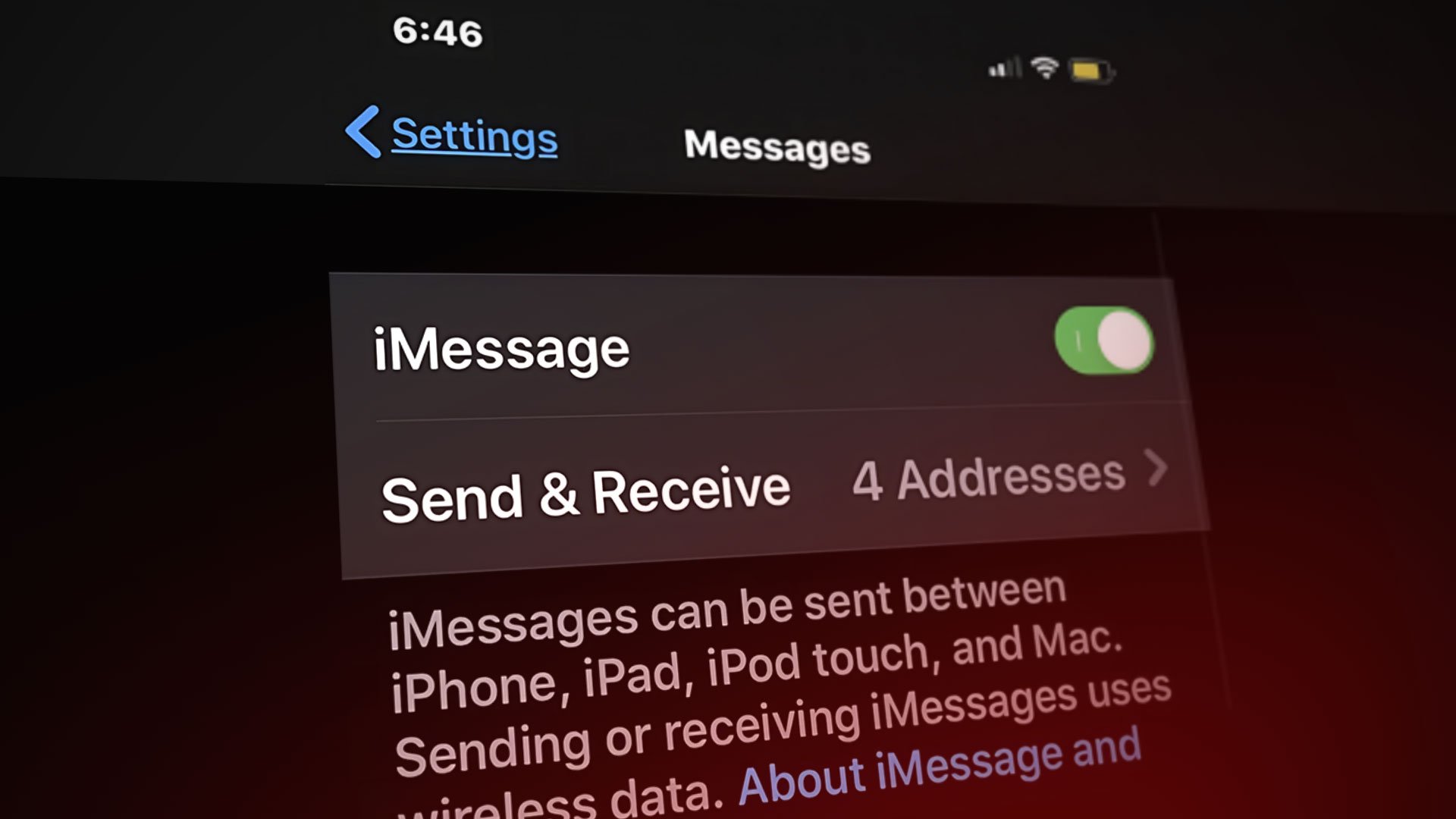
Additionally, network connectivity issues such as weak or inconsistent internet connections can disrupt syncing. An outdated version can also introduce compatibility problems. Another factor could be if iMessage is disabled on any of the devices, as this will prevent message syncing.
Whatever the reason may be, the good news is that you can fix this issue without any professional help. In this article, we have mentioned a few verified troubleshooting methods to fix the iMessage syncing issue. Stick with us till the end to learn all the details.
1. Restart iMessage
Before proceeding with the troubleshooting methods, first, apply this simple yet effective workaround. Turn off iMessage for a few minutes and then restart it. This trick has helped many people get rid of iMessages desync. You access iMessages in the Settings app and use the toggle key to turn it on/off.
In case you forgot to enable it in the first place, you’ll see the turned–off toggle. Simply enable it and you’ll get back to normal iMessaging.
iPhone:
- Go to Settings > Messages.
- Turn on/off the toggle to restart iMessages.
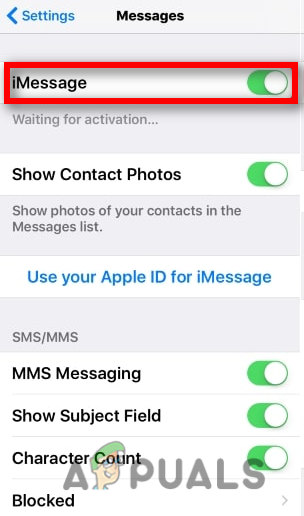
Enable iMessages
Mac:
- Launch the Messages app on your Mac.
- In the top bar menu, click Messages and select Preferences from the drop-down menu.

Go to Preferences - Now click iMessages at the top and choose sign–out in the next window.
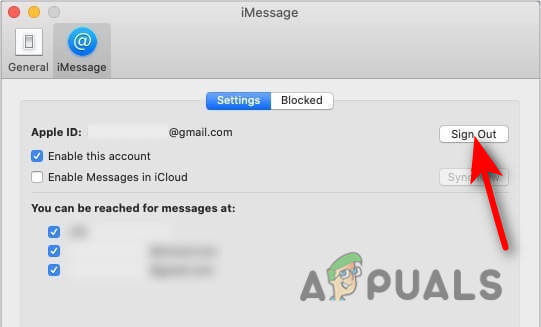
Sign-out of iMessages - Once signed out, you have to sign back into your iMessages to give it a fresh start.
2. Enable iCloud to sync iMessages
Just like any other application, iMessage works on the principle of data and it requires good storage capacity. In order to experience seamless synchronization. We need to make sure that our iCloud must be enabled for both iPhone and Mac:
iPhone:
- Go to Settings.
- Tap on your Account Name to go under the iCloud section.
- Turn on Messages by swiping to the right.
Mac:
- Go to Messages > Preferences.
- Click on Enable Messages in iCloud.
- Tap on Disable this Device and after a few minutes re-enable the Enable Messages in iCloud option and restart the application to resolve the issue.
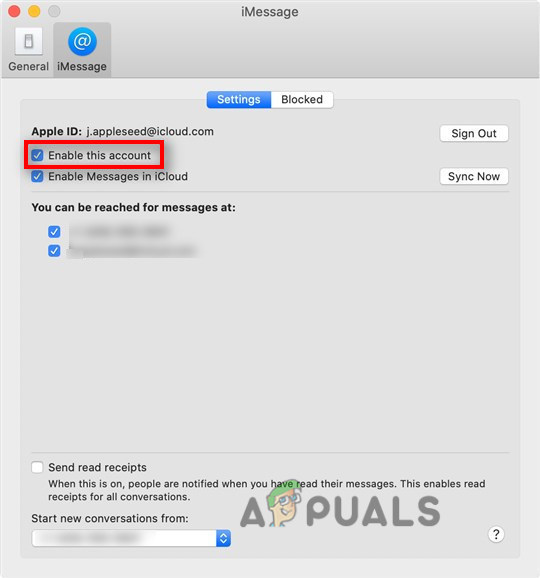
Re-enable iMessages
3. Check Apple ID
Having different credentials in your iDevices such as email address or phone number is another reason that your iMessages are unable to sync properly between devices. Make sure to use the same Apple ID across all of your iDevices. We can fix this with some basic settings for iPhone and Mac:
iPhone:
- Go to Settings > Messages > Send & Receive.
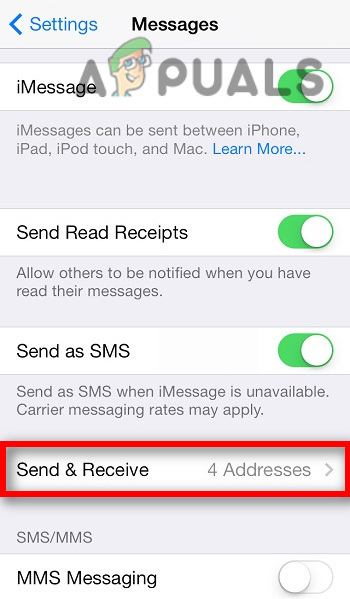
Tap on the Send and Receive option - Confirm your Apple ID if it is correct or not.
Note: Send & Receive option under the Messages section will only be displayed if you enable the iMessage toggle to the right at least 24 hours prior.
Mac:
- Go to Settings > Apple ID.
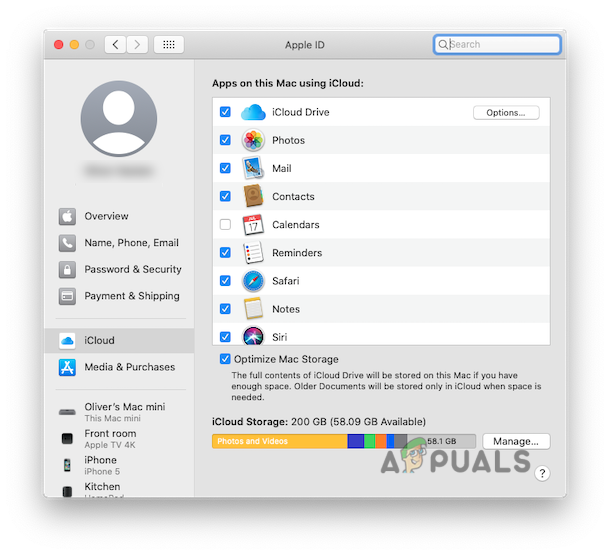
Check your Apple ID - Verify if it is the same as the phone that you are using on your iPhone or not.
4. Check Apple System Status
It is not mandatory that the problem is arising from the user end. Sometimes it is possible that due to the heavy load on the Apple System, the services are not working properly. So, it is recommended to check if the services are working well or not:
- Go to: https://www.apple.com/support/systemstatus/.
- Make sure that Apple ID and iMessage must be shown as green.
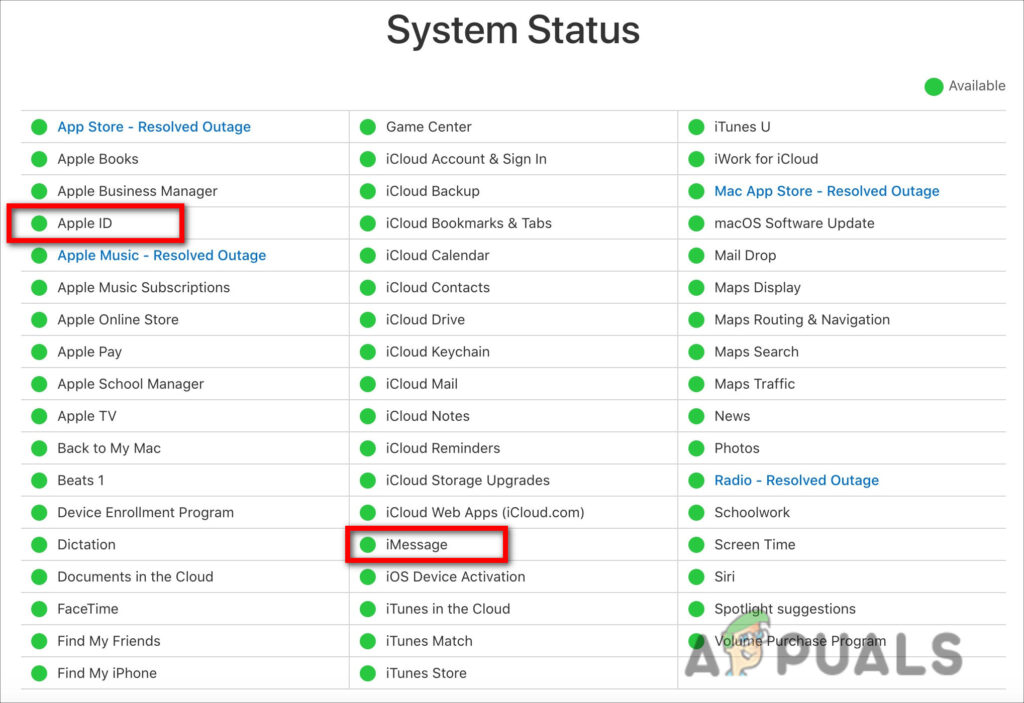
Check server status for Apple ID and iMessages
5. Send iMessage from Mac
There have been some cases in which you’ll see that even after having the same Apple ID on your iDevices, you still face synchronization issues. You will be able to receive iMessages on your iPhone or iPad but not on your Mac.
In this case, send a message from your Mac and it will start synchronizing messages as if it was trying to confirm you are on your Mac.
- Go to Messages > New Message.
- Send a message to someone you know.
- After sending the message, you’ll be able to see your iMessages on your Mac right after some minutes.
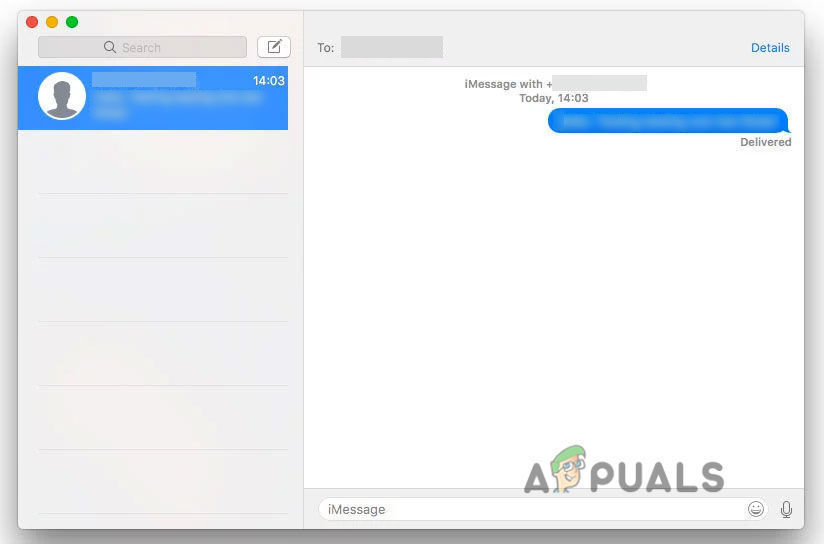
Send a message on Mac
6. Reset Network Settings
Although iMessage doesn’t use the local network, it still needs the internet to work properly. Therefore, any error in network settings can cause iMessage desync between devices. Thus, resetting the network settings can help to resolve this issue.
Before proceeding, make sure to save important network names and passwords to re-login after the reset
1. Go to Settings > General > Transfer or Reset iPhone.
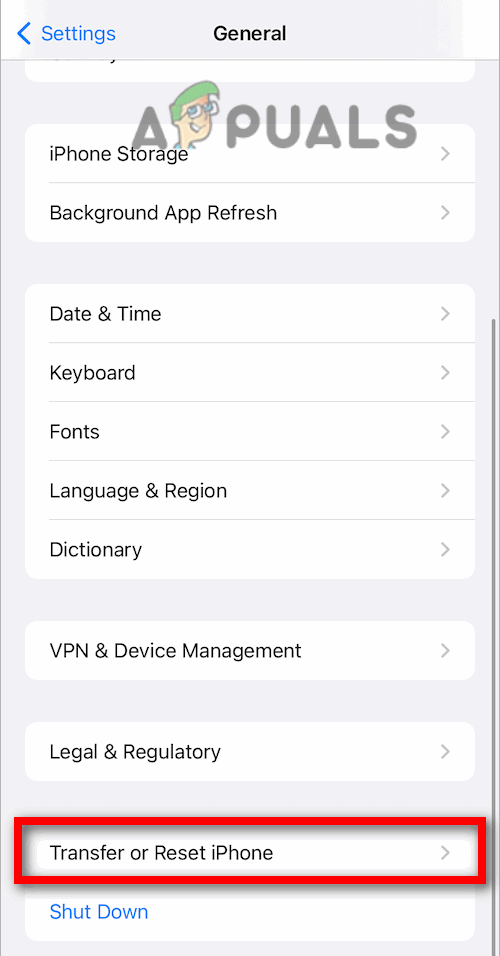
2. Tap on Reset Network Settings.
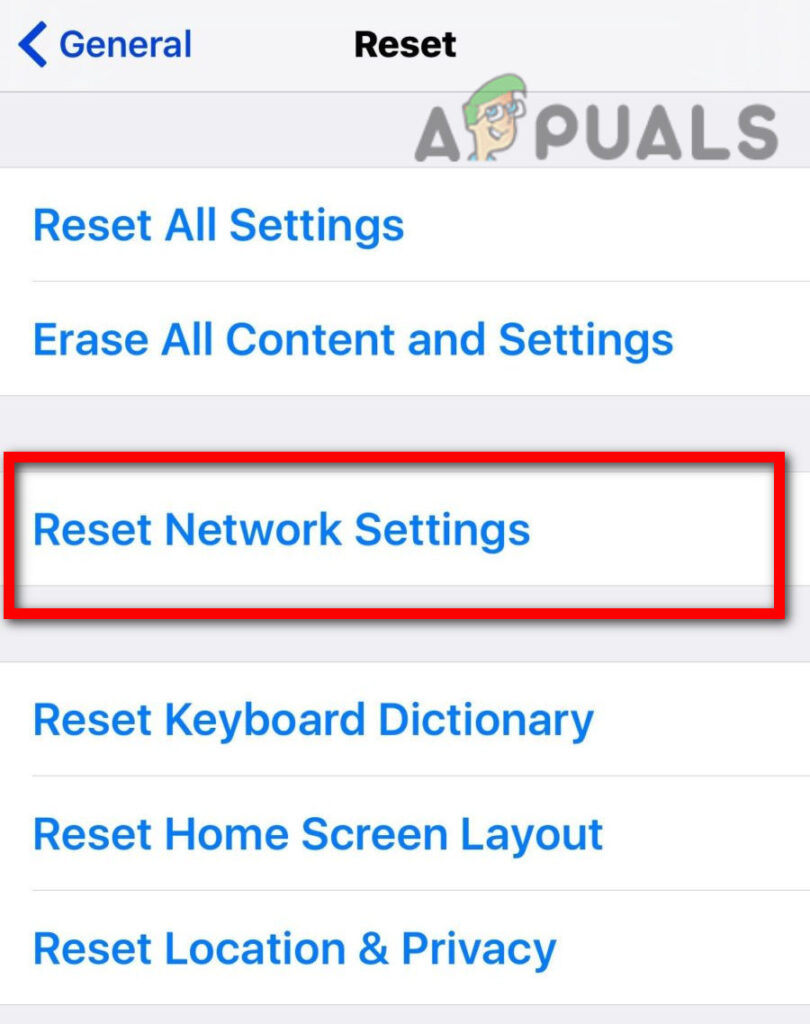
7. Enable Text Message Forwarding
This option allows your iPhone to forward or sync your iPhone message to your Mac or iPad. You just need to enable it and it will display the list of your iDevices that you can connect.
To enable,
Go to Settings > iMessages > Text Message Forwarding.
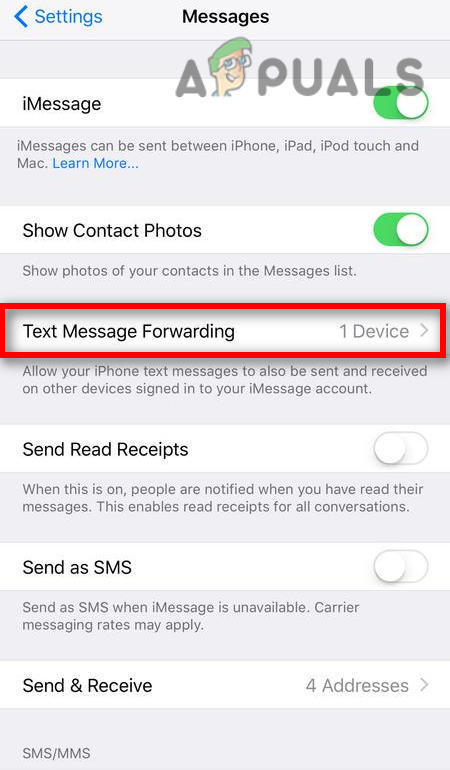
8. Enable Handoff
Initially, this feature was not meant to be connected with synchronization. But, later on, many people address that it has got a strong relationship with the iMessage syncing issue. As it allows you to continue your work on the second device while leaving it on the first device. Here’s how you can enable it:
iPhone:
- Go to Settings > AirPlay & Handoff > Handoff.
- Toggle to the right to enable it.
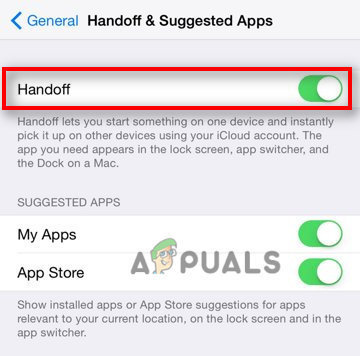
Turn on the toggle for Handoff options
Mac:
- Go to Apple Menu > System Preferences > General.
- Put a checkmark on Allow Handoff between this Mac and your iCloud devices.
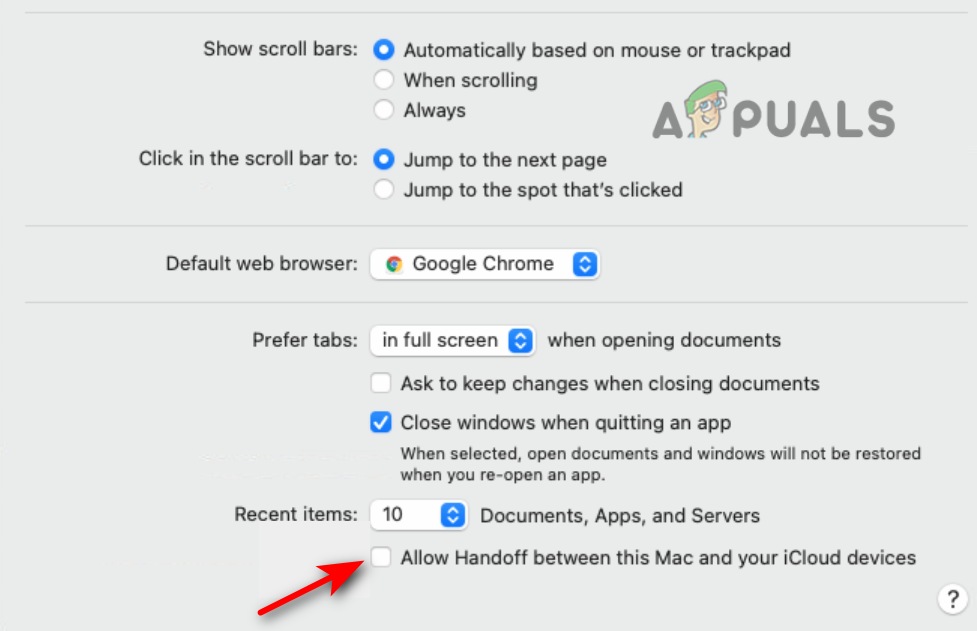
Check the box for Handoff
 Reviewed by
Reviewed by 




